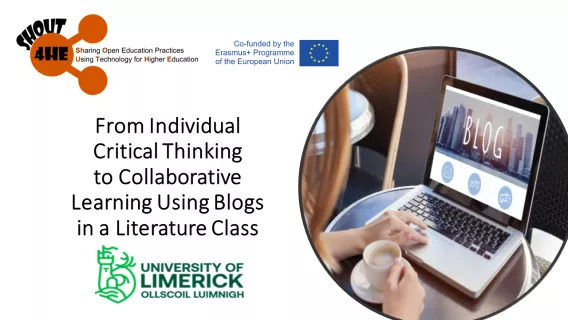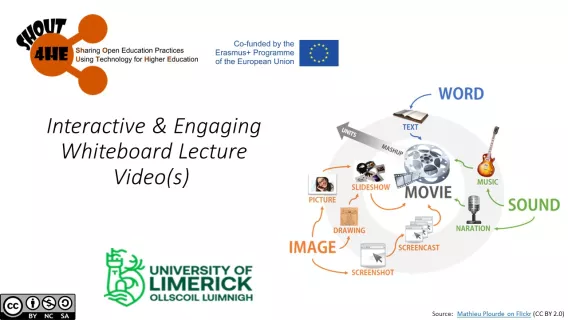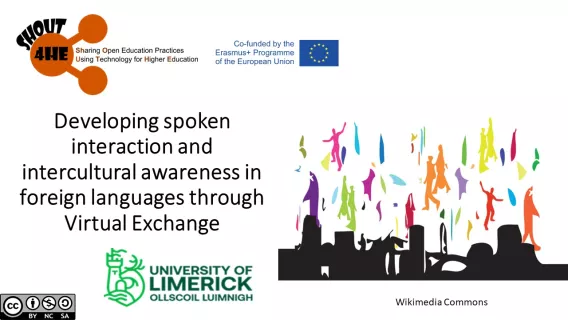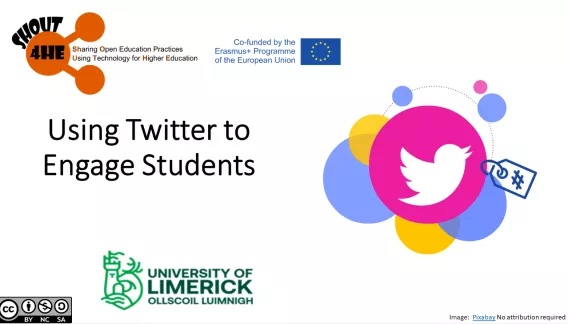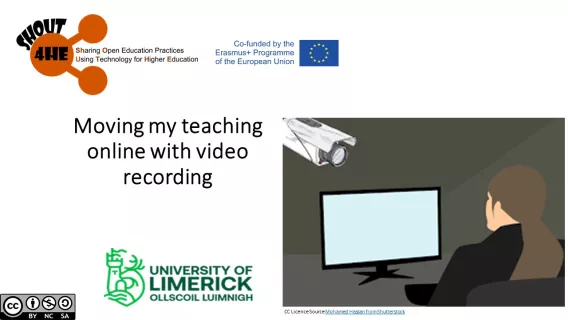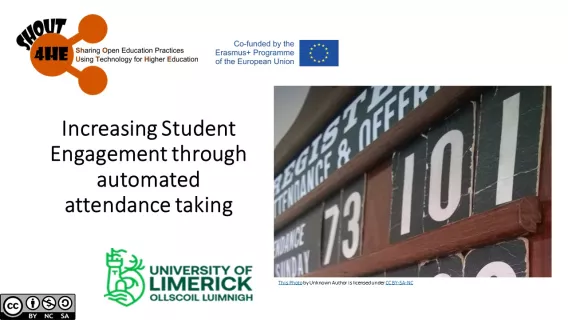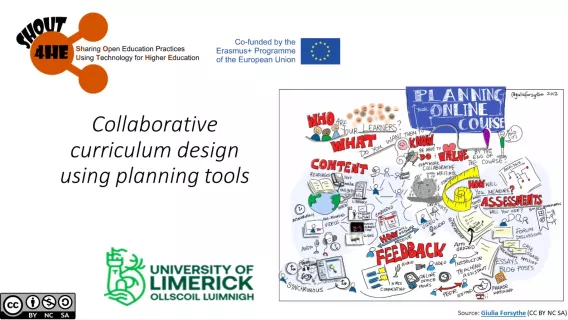‘SHaring Open educational practices Using Technology for Higher Education’ (SHOUT4HE) is a three-year project (2018-2021) funded under the Erasmus+ Key Action 2, which comes from the basis that ‘international collaboration is particularly crucial in the case of open educational practices, which we believe are the key for university pedagogy to keep page with an increasingly pervasive and sophisticated digital era’.
The project aims to develop a recognition framework for effective use of technology in Higher Education (HE) teaching, design an e-platform for sharing open education practices and resources and create a set of e-resources for sharing of teaching practices. There are five university partners (Bordeaux, Cardiff, Hasselt, Limerick, Nice), in four countries (Belgium, France, Ireland, the UK), all of whom are involved in HE teacher education. The team at UL is comprised of:
Dr Angelica Rísquez, CTL (PI)
Sinead Spain, CTL
Dr Liam Murray, AHSS
Prof Fiona Farr, AHSS
Each partner has worked with local teachers covering a wide variety of disciplinary knowledge and pedagogical experience with the goal of recognising, developing and sharing innovative practice with technologies. Leading one of its working packages, CTL coordinated the ‘Sharing Open Educational Practices in Digital Learning’ national multiplier event in collaboration with National Forum and the IUA, with participation by over 50 attendees nationally. The resultant framework, e-platform, open educational practices, and e-Books are freely available and widely disseminated at https://library.shout4he.eu/.
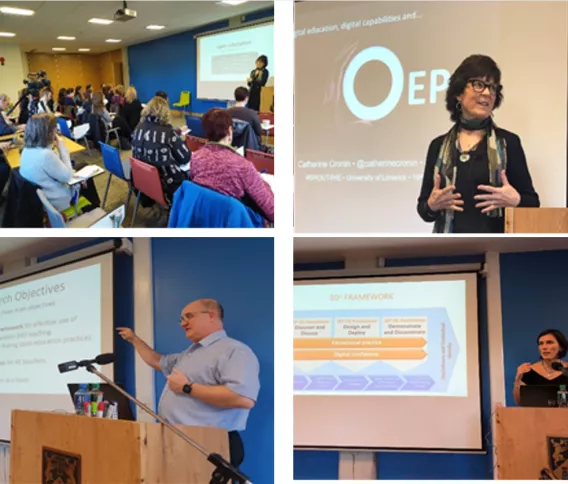
The following videos have been produced by UL colleagues who have generously contributed to the project by showcasing a diversity of open educational practices[1]:
[1] Please note that a variety of tools and technological resources are referred to in these videos, which are intended to place the focus on the pedagogical approach and the transferability of the educational practice across international contexts. This does not imply endorsement of these tools, and UL users are encouraged to use supported tools when possible.
